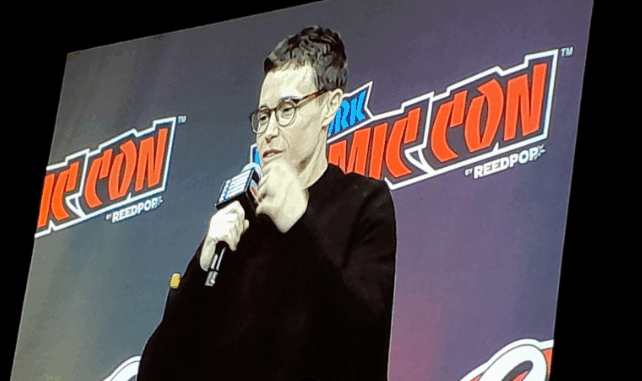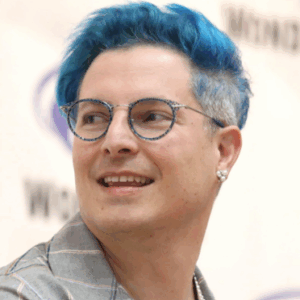
BY KIRSTEN DAVIS
In comic media, queer gender identity has always been a topic of controversy. The Comics Code Authority (CCA), a code created by the Comics Magazine Association of America, was strictly voluntary and allowed comic publishers to regulate the content being produced by their companies. However, most mainstream companies including Marvel Comics and DC Comics adhered to the code and its strict criteria. From its adoption in 1954 to 1989, when comic creators began finding ways around the code, the CCA’s criteria included the censorship of LGBTQ themes in comic books. It wouldn’t be until 2011 that the code was completely abandoned.
Even with the abandonment of the code and queer themes becoming more normalized in modern comic book media, there is still a lack of acceptance. Transgender characters, especially if comic fans feel their identity strays from the source material, are facing the brunt of the disapproval.
Elliot Page is an actor known for films like Juno, Hard Candy, X-Men: Days of Future Past, and most recently, the Netflix television series The Umbrella Academy. Page, who came out as transgender in 2020, had been portraying strictly straight female characters for the entirety of his career up until The Umbrella Academy reached its third season. The show follows a group of seven superpowered siblings raised by billionaire Reginald Hargreeves and prepared to save the world from the day they’re born under mysterious circumstances in 1989 as they work to solve the mystery of his death in 2019.
In the second episode of the season, Viktor Hargreeves, formerly known as Vanya, came out as transgender to his brothers in a brief moment that is never brought up again. Despite the show not having a large focus on Viktor’s gender identity, some fans struggled to accept the decision to have the character transition midway through the series when they were so used to Vanya, a character who did not have her own transition in the comics.
“It sort of tracks my own transition,” Page said at a panel showcasing his work in X-Men: Days of Future Past during New York Comic Con (NYCC) 2025. “The fact that Steve Blackman was so open to making that a part of Viktor’s story, I was just really grateful for the whole thing.”
The character’s transition was not Page’s idea for the series moving forward. He would have continued to portray Vanya Hargreeves, but Blackman, as creator and showrunner, made the decision entirely to incorporate Page’s own life despite some fans’ accusations that he was pushing his transition onto the character. However, for Page, having a character he can now relate to makes his journey as an actor that much better for him.
“Being more comfortable in yourself makes these sorts of projects more enjoyable just waking up every day and going to work,” Page said.
Voice actor JP Karliak is another victim of criticism for his work in the comic media industry. Since the release of X-Men ‘97, created by Beau DeMayo in 2024, Karliak has taken over the mantle as X-Men character Morph from the character’s previous voice actor, Ron Rubin. His debut as the character also came with a change in Morph’s gender identity. Previously identifying as male in the original 1990s series, the character now identifies as nonbinary.

The change was even less welcome than Viktor Hargreeves with fans of the original series outraged and even posting videos discussing Marvel’s “stupid decision” and describing it as “nonbinary Morph propaganda”. One content creator, Vara Dark describes the new series, X-Men ‘97 as a “social justice nightmare”.
“DeMayo specifically changed the pronouns for Morph to they/them in his presentation and expressed that Morph is taking on a new persona for their changing look and of course this is ridiculous for so many reasons,” Dark said. “This is a legitimate change that is going to infuriate so many people.”
Criticisms aside, Karliak, who was also present at NYCC at the Unknown Comics table for the series’ voice actors, showed no worry about how people would take his portrayal of the character.
“I’m a believer that all press is good press and you know, these people that are screaming about Morph’s gender identity are not really X-men fans because if they were, they would understand that X-men has always been about uplifting the underrepresented and oppressed and has been a metaphor for so many civil rights movements,” he said.
Karliak is the founder of Queer Vox, an organization that provides opportunities, training, and support for LGBTQ voice actors. For him, the controversy and politics only give him and LGBTQ voices a larger platform.
Both Karliak and Page don’t let controversy stop them from their work. If anything, they use it to grow stronger as actors.
“If anything, I feel like knowing the negativity that’s coming at Morph is a reminder that there is so much negativity that is coming at individual people in this world and in anything my performance of Morph is for them,” Karliak said. “It’s for the people who are receiving this negativity and hatred and are feeling like outcasts in their town or in their family and just being a positive source of light for those people. That’s really what drives me.”
